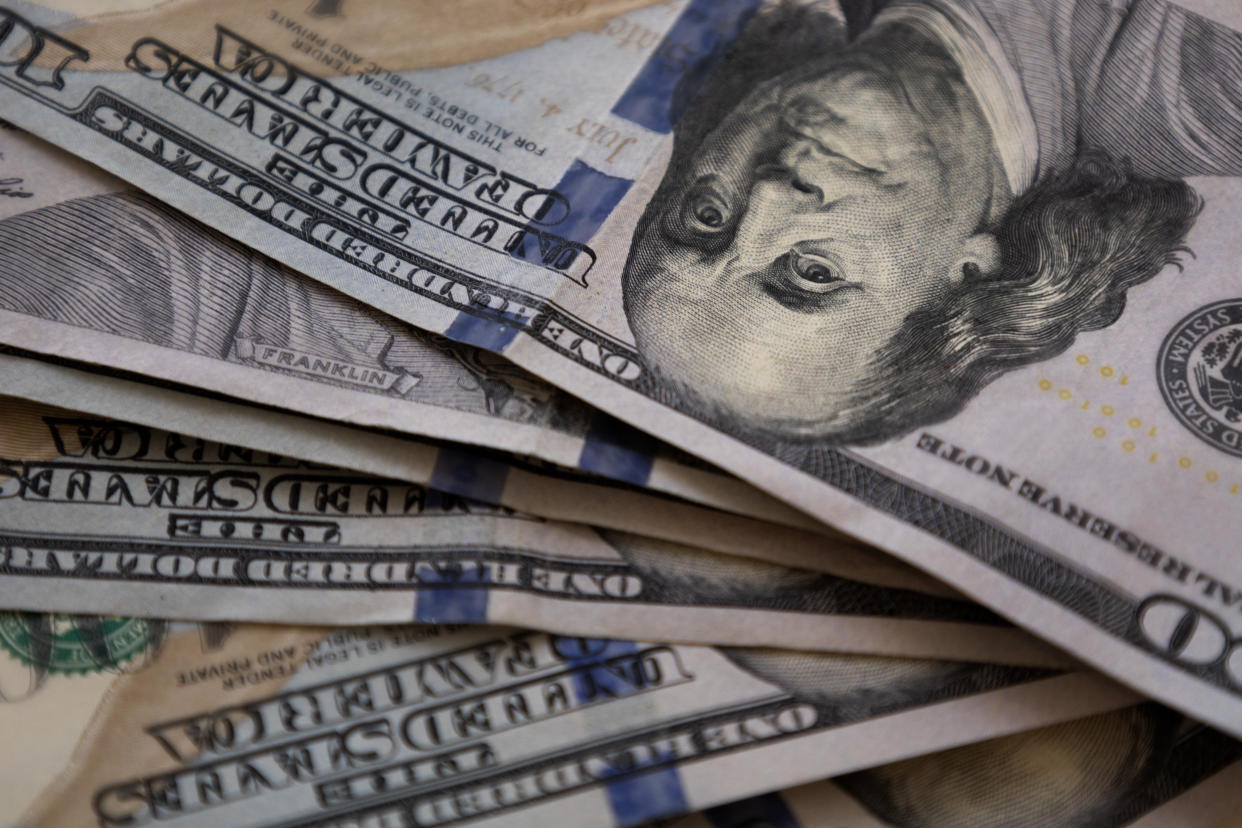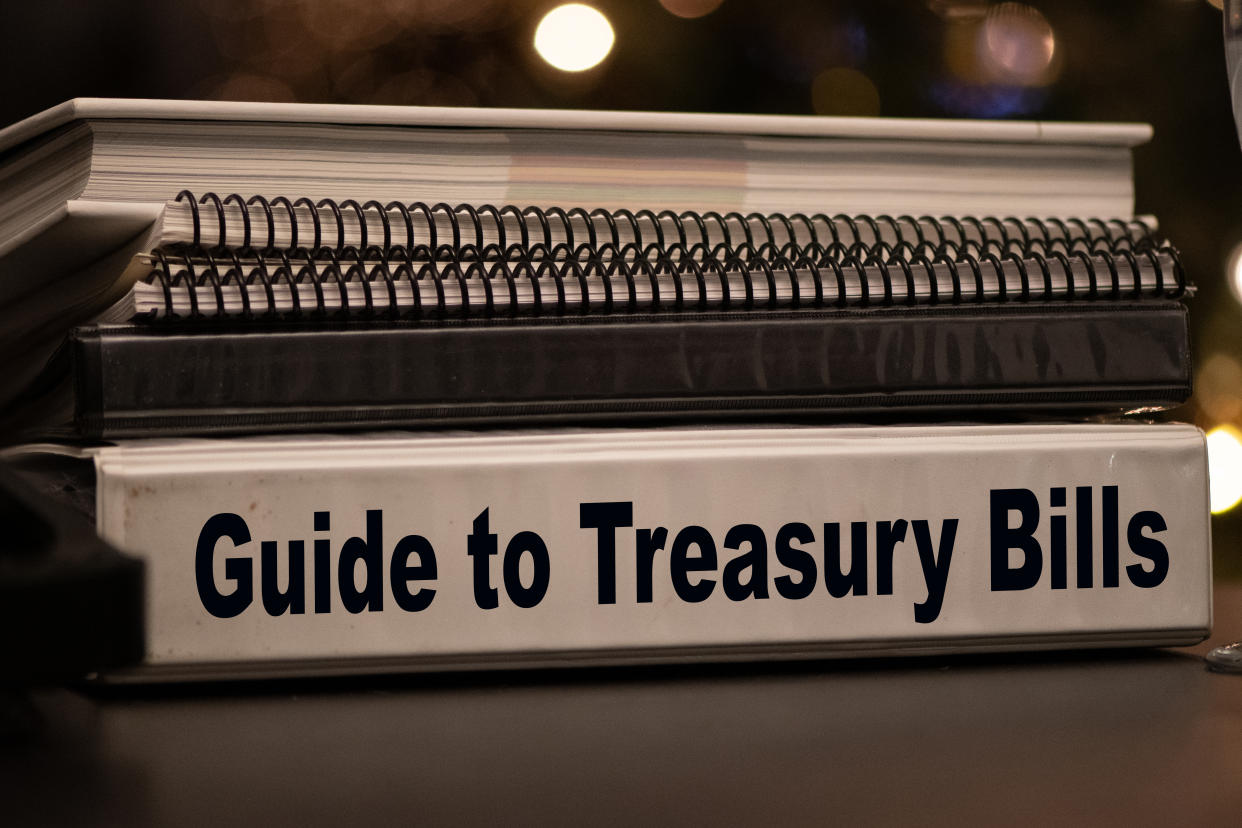Retirement investors are finally getting good returns from the 'safest assets in the world'
For a long time, cash had so little returns that baby boomers had no choice but to invest more in riskier stocks as they approached retirement to get the returns they needed.
But since the Federal Reserve started jacking up its benchmark interest rate, that’s shifting and cash investments are seeing some of the largest yields in more than decade.
The average online savings account return is now 4.39%, according to DepositAccounts.com. The average yield on an online, one-year certificate of deposit, or CD, is now 5.10%, while the one-year Treasury bill is yielding 5.46%.
Financial advisers are taking that into consideration as they help manage the portfolios of their retired clients and those closing in on retirement. But while many expressed enthusiasm for the new options that cash investments offer, these advisers also cautioned that stocks still play an integral part in an investor’s retirement portfolio.
"While short-term investment products, like money markets and CDs, can play a role in portfolios, it may be difficult to build a longer-term portfolio allocation around them as short-term interest rates can fluctuate as monetary policy changes," said Adam Reinert, chief investment officer and COO at Marshall Financial Group. "Though with higher interest rates on intermediate-term debt, investors may not have to be as dependent on equity allocations to do as much of the heavy lifting for portfolios as they did from 2010-2019."
Read more: The best money market accounts for September 2023

What are they buying and for whom?
Jordan Benold, a financial planner from Benold Financial Planning, said his firm previously advised clients who were in retirement or near it to invest in "riskier income assets like preferred stock, corporate bonds, and REITs to increase their income."
Now, he is recommending in six-month Treasury bills "simply because they pay the most."
"There is no reason to take that risk when one of the safest assets in the world is paying 5.5%," he said. "Also, I am having my younger clients invest a small portion into T-bills for their bond allocation. This is not a large percentage, but once again, it will provide the insurance they need if the stock market decreases and will pay a high coupon."
Certificates of deposit, in particular, can benefit near-retirees and current retirees alike.
Malcolm Ethridge, executive vice president at CIC Wealth, noted that CDs with six- to 12-month maturities are a strong investment for retirees who have already begun drawing income from their portfolio. Pre-retirees, concerned that they might be retiring into a recession, can "de-risk their portfolio" by moving a couple years' worth of expenses into cash via a brokered CD, he said, allowing them "to weather any potential storm while entering retirement."
"We have been buying more brokered CDs on behalf of our clients in the last seven or eight months than at any other period in my career," Ethridge said.
In the last year and a half, Holzberg Wealth Management has been shifting client portfolios to CD ladders with minimal risk. CD ladders are when financial planners use multiple CDs with different maturity dates.
If interest rates continue to rise, the firm plans to reinvest the near-term CD funds into ones with longer maturities, which increases the overall yield, said Marcus Holzberg, a certified financial planner at the firm.
"If interest rates fall, the same strategy can continue or be redeployed to other market opportunities," he said. "In other words, it's a win-win."
Read more: The best CD rates for September 2023

What about stocks?
Stocks, though, still play an important role in portfolios.
For roughly the last 40 years, net growth from cash was reduced to zero after subtracting inflation and taxes, founder and principal at Daniel J. Galli & Associates, said.
"In order to have real buying power growth, dollars need to earn more than what they can in cash," he said. "Historically stocks have delivered this ...The price we pay is volatility. But over long periods of time stocks have generally delivered real buying power growth."
Jon Ulin, CEO of Ulin & Co. Wealth Management, also pointed out that the Federal Reserve will eventually cut rates — though maybe not for a few years given this week’s Fed meeting — bringing them back to where they began last year.
"While it may be sensible to position a couple years of cash reserves in low-risk, high-yield cash instruments and buckets," he said, "investors will better benefit over time by staying diversified, rebalancing, and buying low into stocks and bonds for their long-term retirement accounts and not give up potential gains around the turnover of the next bull market."
Read more: The best high-yield savings account rates for September 2023

Risk-free can still be risky
Cash also offered fewer benefits in the long term.
"Time is a crucial factor when considering long-term investing, whether you are in or nearing retirement," Ulin said. "The longer your investment horizon, the more you can benefit from the market's historical tendency to recover from declines and deliver substantial returns over the long haul."
Folks can also underestimate the length of their retirement and subsequently the need for the historically bigger returns stocks deliver over cash.
"The time horizon for a retiree is still 20-30-plus years. In today’s interest rate environment, if you were to construct a 20/80 portfolio in fear of equity risk, then any gains you’d have in the fixed-income portion would just be eroded by inflation," said Nate Creviston, manager at Capital Advisors Ltd. "You still need to have a balanced approach to your asset allocation through retirement."
Stocks are also up year to date. The S&P 500 index (^GSPC) is up 12.5%, while the Nasdaq (^IXIC) has increased 26.2% since the beginning of the year. Consequently, folks should weigh the risks and benefits of cash, said Constantine Tsantes, a financial planner at Cetera Advisor Networks LLC.
"In the long run, you are only going to miss out on the upside, like what we have seen in equities this year," Tsantes said. "If retirement is around the bend, sure we can allocate to more fixed-income investments, but there is really no need to keep more than two to five years of expenses set aside in those investments."
Dylan Croll is a Yahoo Finance reporter.
Read the latest financial and business news from Yahoo Finance
